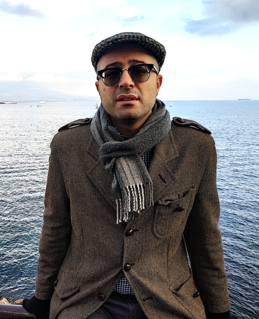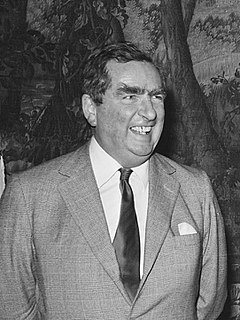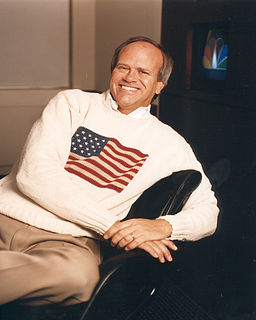A Quote by Lee Harvey Oswald
I always felt that the Cubans were being pushed into the Soviet Bloc by American policy.
Related Quotes
Gorecki, you know, there's a kind of personal thing there for me. I had, you know, kind of become obsessed with that sort of Soviet Bloc period. And actually, a lot of composers in the Soviet Bloc - Gorecki's not the only one - are writing for the harpsichord as a sort of reaction against enforced Soviet realism, expressionism, sort of enforced modernism.
What does nonalignment mean? It means we don't belong to any military bloc and that we reserve the right to be friends with any country, independently of the influence of any country. All this has remained unchanged after the signing of the Indo-Soviet treaty, and others can say or think what they like - our policy won't change because of the Soviet Union.
The thing that should most concern us is a shift in American foreign policy. We have had a bipartisan belief in American foreign policy based on the post-World War II institutions that believed in democratic global world, which Russia and the Soviet Union was often seen as hostile to. And most Republicans and Democrats have always basically believed in this world order. Donald Trump and Vladimir Putin and maybe Marine Le Pen do not agree with this basic structure of the world.
Now that we are used to globalisation it's hard to imagine a time when the countries behind the iron curtain were largely obscured from the western gaze. The Soviet bloc was a genuine mystery. Such was the dehumanisation of the Soviets that Sting could wonder in song if 'the Russians love their children too.'
Once the Eastern Bloc collapsed, what I call 'historical spontaneity' prevailed and the countries that were subject to Soviet control naturally gravitated to the West. That's where they sought their security; I don't think there was a way to avoid that. If we tried to exclude them, we would have today not one Europe, we would have three Europes: one in the West, one in the middle and one in the East, and the middle would be insecure and a tempting target. The insecurity felt [today] by Eastern Europe would be replicated on a much larger and more consequential scale.
In Iraq, until before the war, the women were scientists, museum directors, doctors. I'm not valourising Saddam Hussein or the Soviet occupation of Afghanistan, which was brutal and killed hundreds of thousands of people - it was the Soviet Union's Vietnam. I'm just saying that now, in these new wars, whole countries have slipped into mayhem - the women have just been pushed back into their burqas - and not by choice.
Our problem was that in the American approach to Soviet affairs policy has oscillated between people who take an essentially psychological approach and people who take an essentially theological approach, and the two really meet. The psychologists try to "understand" the Soviet Union. And try to ease its alleged fears. The theologians say the Soviets are evil.




































